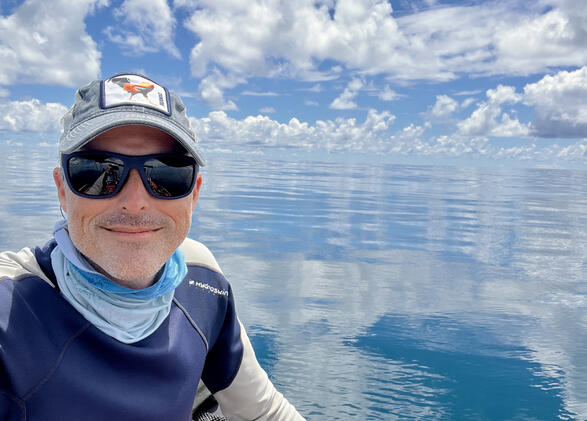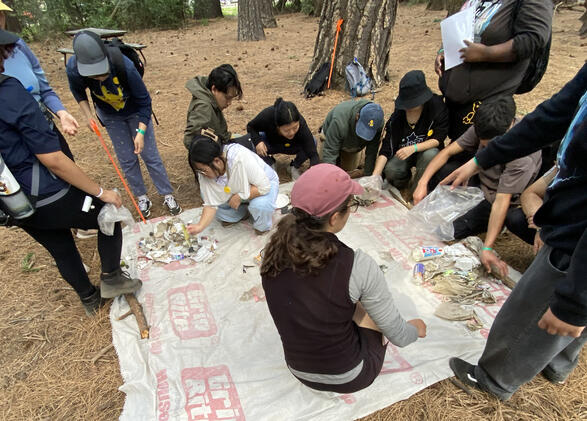Closing Celebrations & Science Investigation Presentations for Olympic Alcoa Session One
This past Thursday evening, our Olympic Alcoa Scholars (Session One) gathered in NatureBridge’s Storm King Hall Classroom for their Science Night. Throughout their time in the backcountry, Scholars collaborated to design and implement a science investigation. As a part of the closing celebrations, each group shared the results of their research in a short presentation.
Attending the Science Night were representatives of the National Park Service, students from WSU Upward Bound - Yakima County, their Alcoa Scholar peers and NatureBridge staff. Scholars chose a range of topics pertaining to biodiversity and climate change to investigate while backpacking through the Olympic Wilderness: from the canopy density of trees and trees’ ability to sequester carbon, to how macroinvertebrates in rivers and streams are affected by water temperature and altitude.
It was impressive how clearly Scholars saw the connection between the specific ecological components they were observing and the larger impacts that climate change has had, and will continue to have, on that ecosystem.Katie Draude, Summer Prorgams Manager
The Scholars did an exceptional job of collecting and synthesizing their data, especially when considering all of the other different skills they were learning in the backcountry. Emily and Millie utilized a specialized tape measure that calculates the approximate pounds of carbon that trees are able to sequester based on their diameter. They noted in their presentation that Olympic National Park has significant ecosystem value because, given the number of exceptionally large trees in its forests and the extensive intact ecosystem that the national park protects, Olympic works as a carbon sink—plants, the ocean or other natural reservoirs that store carbon-containing chemical compounds—that mitigates the impacts of climate change.
After the Science Night concluded, the Scholars split into their trail groups for one last time to have their closing campfires by Lake Crescent. As Scholars celebrated all they had accomplished in the last few days, they sat around sharing stories and discussing their deeper connection to nature. And they made the most of their campfire by making the classic American campfire dessert: s’mores!
In reflecting on their experiences, Scholars described being able to accomplish more physically than they thought they’d be able to, feeling self-sufficient, creating unforgettable connections with an international community of friends and wanting to take their knowledge back home to work for positive environmental change.
I have learned about humans effect on climate change and how we can actually save our world by doing the simplest of things… As well as realizing what an opportunity I have been given to make a positive impact on others lives and the environment and how I can help make a difference in preserving our natural world.Kate Haggerty, Alcoa Scholar, Australia
Upon their return home, Scholars will share their experience with their communities and hometowns through creating their post-trip projects—which could be in the form of a blog, essay, presentation or video. Be sure to relieve the memories of their journey with all of our Facebook photo albums!

